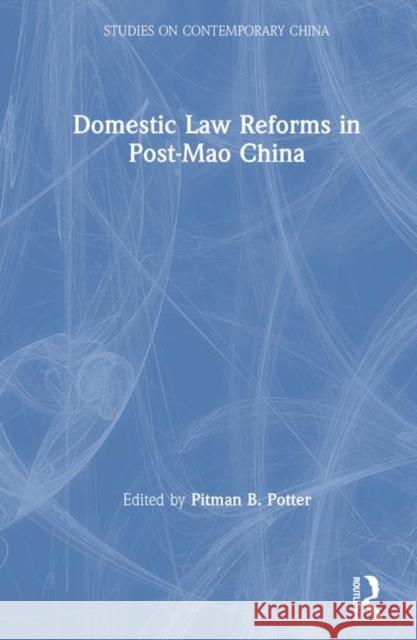Domestic Law Reforms in Post-Mao China » książka
Domestic Law Reforms in Post-Mao China
ISBN-13: 9781563241079 / Angielski / Twarda / 1993 / 328 str.
This volume explores various aspects of the law in transition in post-Mao China. Stanley Lubman's introduction places each of the substantive chapters in the larger context of Chinese legal studies. Edward Epstein analyses the transplanting of European and Anglo-American legal ideologies into China, and the dilemmas this poses for the rule of law and legitimation in the reform period. Murray Scot Tanner analyses reforms in the legislative process, focusing particularly on the separation of the Communist Party from day-to-day legislative affairs and more pluralistic tendencies in the legislative process. William C. Jones, by addressing the opinion of the Surpreme People's Court regarding implementation of the general principles of civil law, raises compelling questions about legal interpretation in China in the context of social reform. James Feinerman analyses developments in Chinese contract law, raising the question as to whether in China it can form a basis for predictability and certainty in commercial transactions that are integral to the economic reforms. Judy Polumbaum studies developing efforts to enact a press law, reflecting the uses to which law has been put in pursuit of the political issue of press reform. Finally, Pitman Potter analyses the emerging concept of judicial review in the context of the Administrative Litigation Law of the PRC, an important aspect of political reform in China. By addressing these issues, the authors aim to reveal the various aspects of the developing autonomy that is embodied in China's legal reforms.











